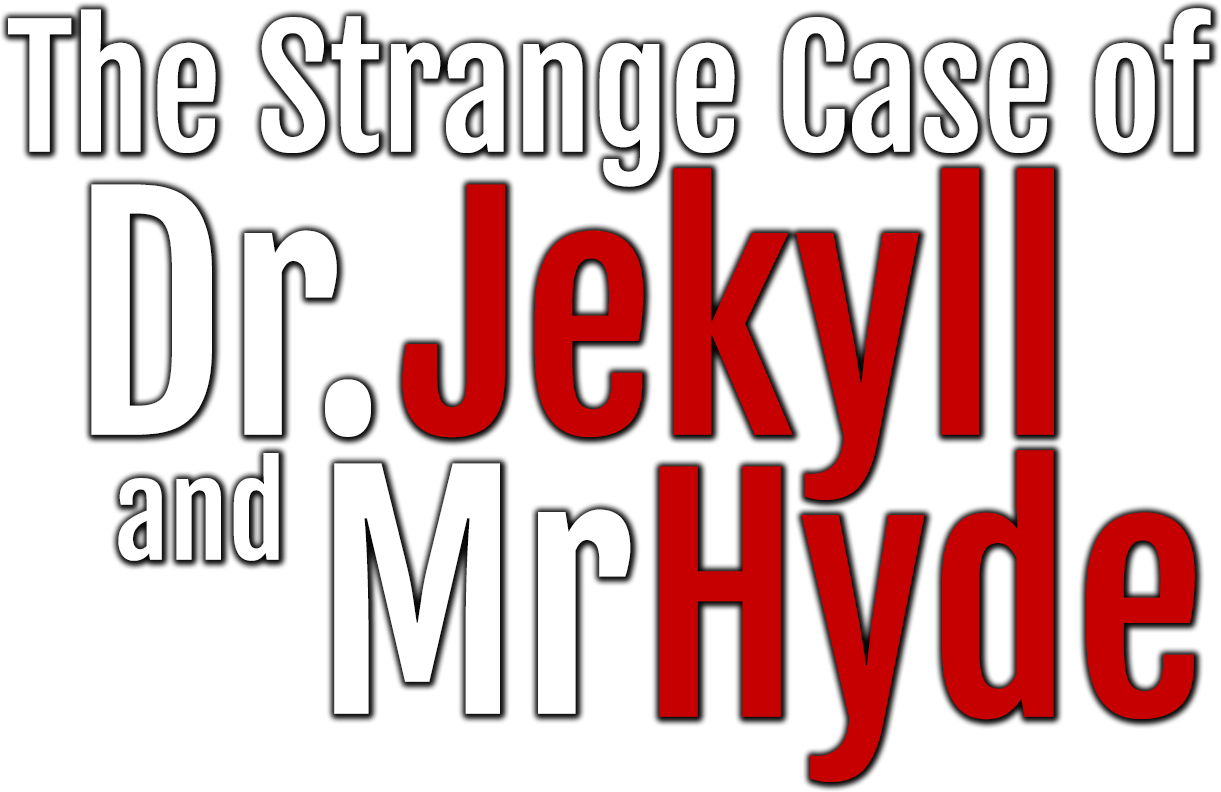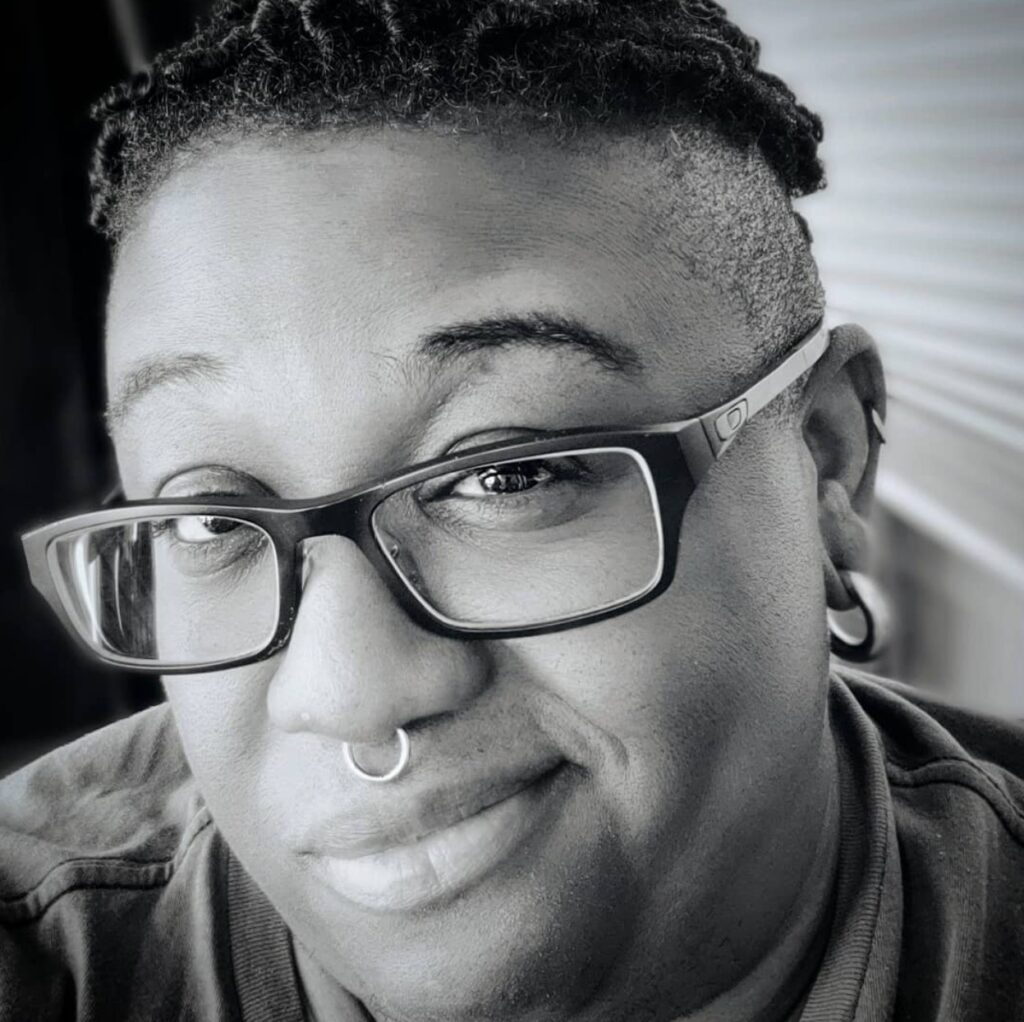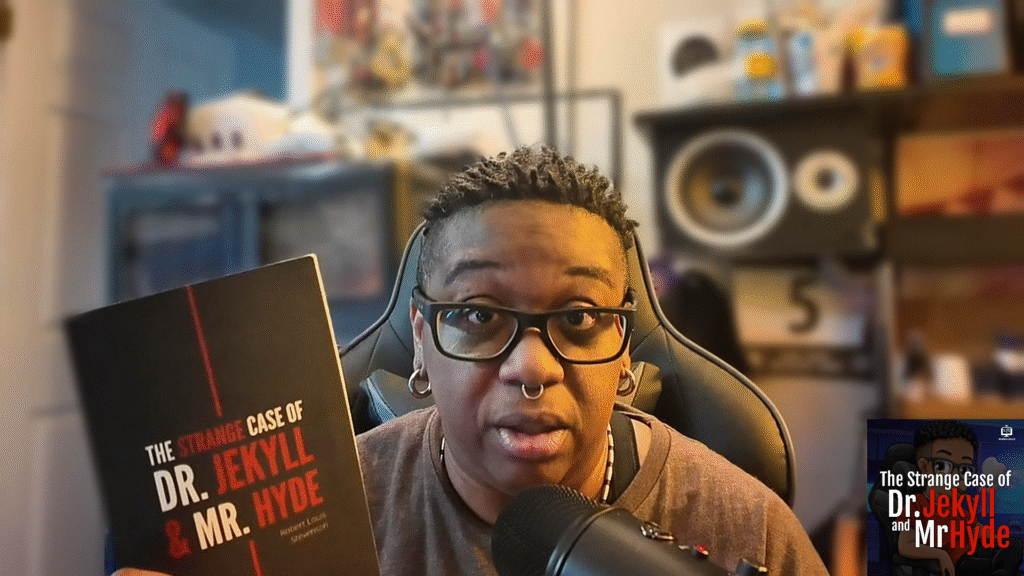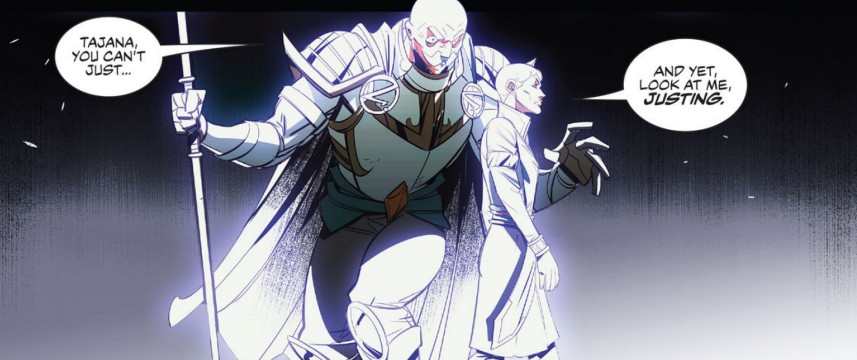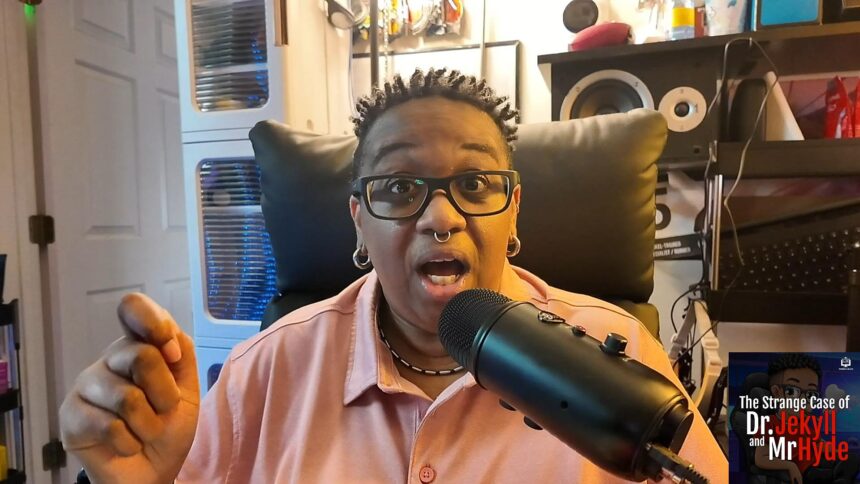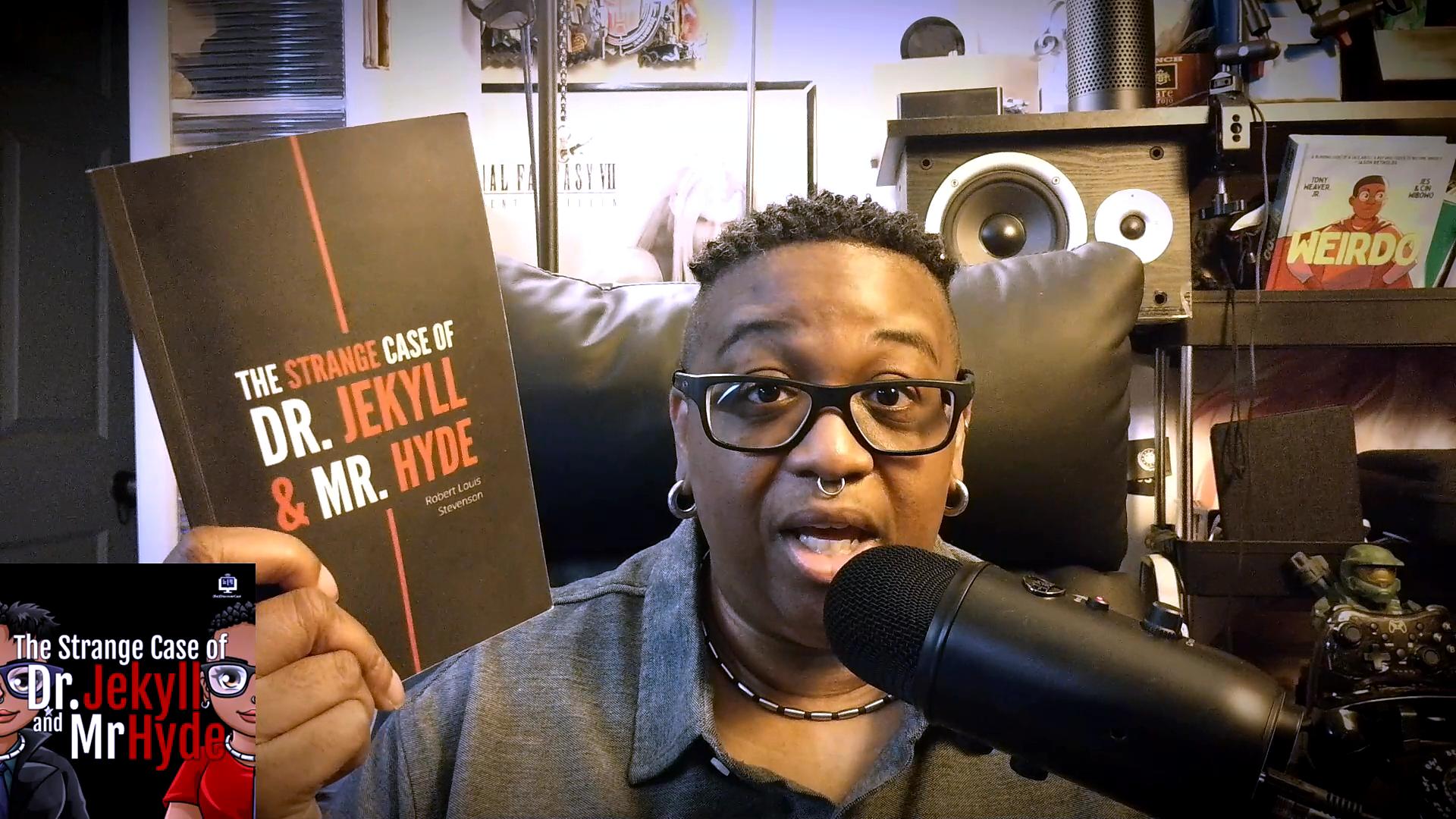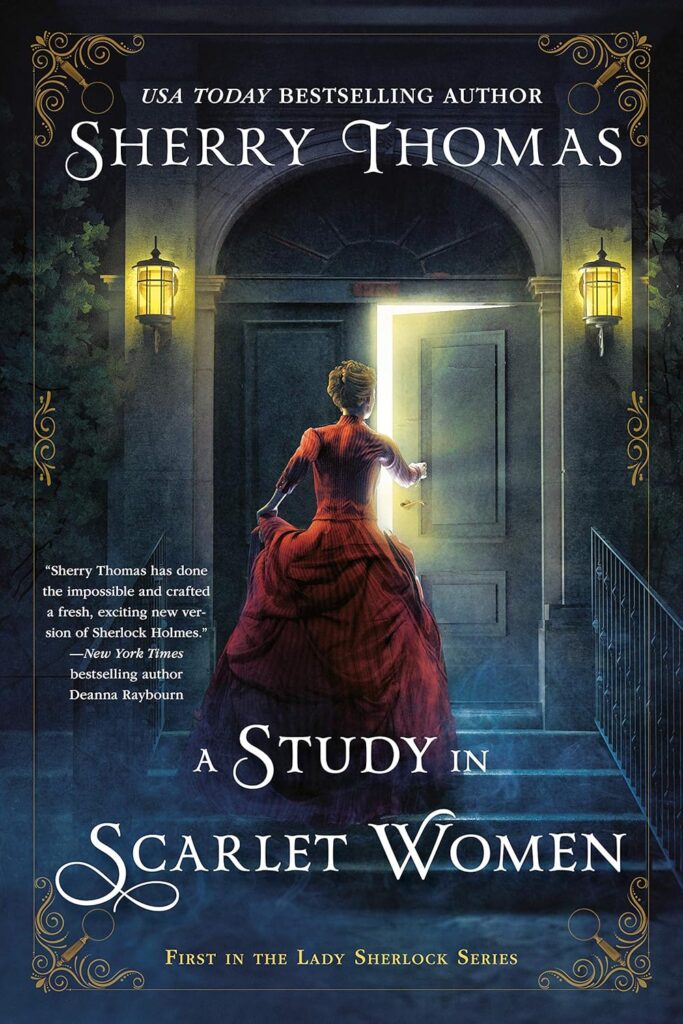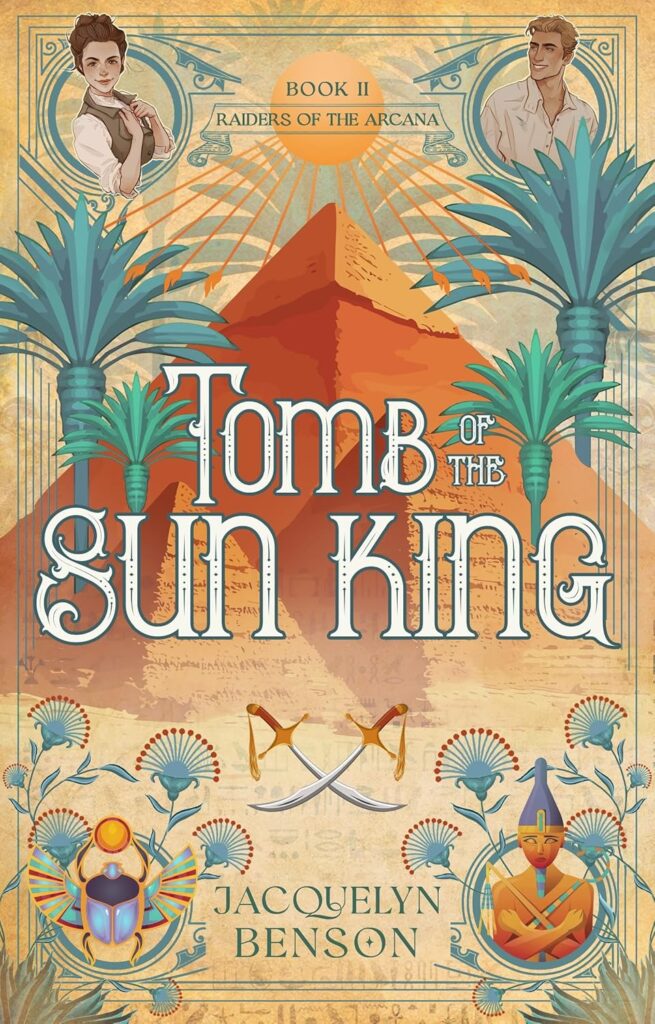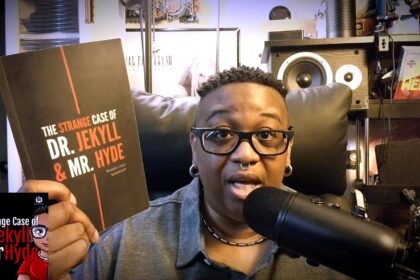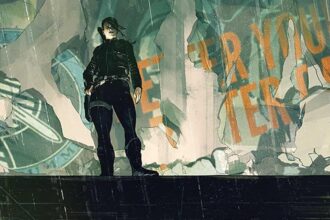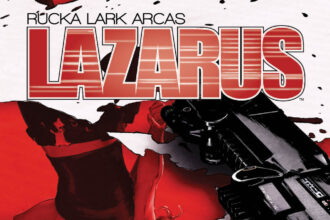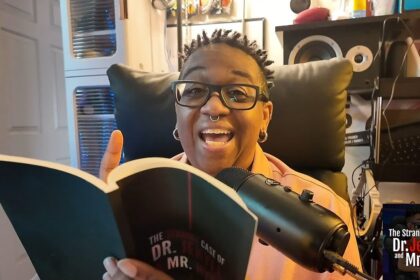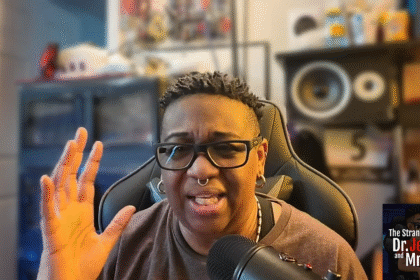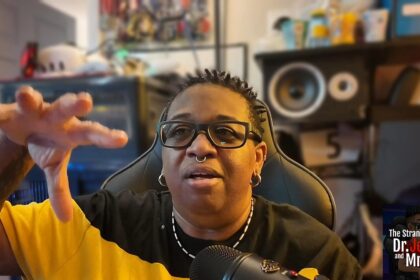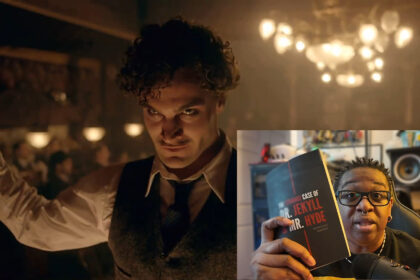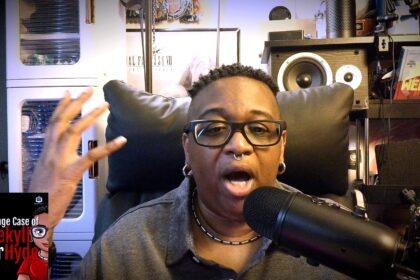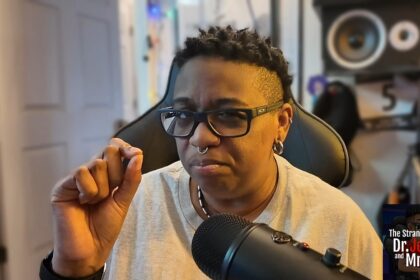The Incident Of Dr Lanyon and The Incident At The Window

As I mentioned in the previous video …
One of the primary issues I have with adaptations of Jekyll and Hyde is that they leave out so much of what makes this story interesting and some of the best aspects of that include the relationship between Utterson, Lanyon, and Jekyll and how that deep friendship is destroyed by Jekyll’s selfish doings. In many ways it feels like trying to be friends with an addict or someone with mental illness and it’s a shame that no adaptations truly address the heartbreak and betrayal and conflicting feelings that go along with being friends with someone in a self destructive spiral.
This video goes into depth about how the story mirrors so much of the reality of addiction spirals, dealing with the breakdown of friendships, and trying to find your role in a relationship with a friend who has descended into a dark and downward spiral. Chapter 6 and 7 are so sad and so upsetting for me on a personal level, but I don’t think I’m the only one who reads these chapters this way. This is very obviously Stevenson’s intention because the wording, the reactions, and the feelings are all there clearly in the text.
Where are the discussions of these underlying themes? Why is there only a focus on Jekyll? Why do people find the selfish, destructive nature of addicts and the mentally ill so fascinating? What about all of the bodies, hearts, and souls left behind in the wake of their death spirals? What about the true victims?
Episode Transcript
[00:00:03] You’re listening to. Elaine is reading the strange case of Dr. Jekyll and Mr. Hyde. Episode 12, chapters 6 and 7, part 2.
[00:00:14] This episode goes into depth about how the story mirrors so much of the reality of addiction spirals. Dealing with the breakdown of friendships. And trying to find your role in a relationship with a friend who is descending down a dark path. This is very obviously ste.
[00:00:32] Intention. Because the wording, the reactions and the feelings are all there clearly in the text.
[00:00:49] So Utterson sort of accepts this. You know, he. He’s. He’s. He’s confused because the dark influence of Hyde had been withdrawn. And the doctor had returned to his old self.
[00:01:03] But then all of a sudden, a week later, he’s almost worse than he was before. So, of course Utterson is confused. And I’m sure he’s pretty devastated about this.
[00:01:14] And then for once, it says, so great and unprepared. A change points to madness.
[00:01:22] But in view of Lanyon’s manner and words. There must lie for it some deeper ground.
[00:01:29] So at this point, Utterson is just like, okay, there has to be more to this. This is the first time he’s willing to say, well, look at Lanyon and look at everything that’s happened. There has to be something else.
[00:01:46] For once. It’s not just like, oh, there’s just this disagreement. No, finally he’s going.
[00:01:53] There has to be something deeper going on here.
[00:01:57] And you’re like, yes.
[00:01:59] And then the next sentence is, a week after, Dr. Landon is dead.
[00:02:08] Okay, Dead. A week later, dead.
[00:02:13] So after the funeral, Utterson gets an envelope addressed by the hand and by Lanyon. And sealed with Dr. Lanyon seal that says private for the hands of G.J. utterson alone.
[00:02:28] And in case of his Predeceased to be predeceased. To be destroyed unread. So this is what the envelope says.
[00:02:38] It is private.
[00:02:39] For the hands of Utterson alone. And in case Utterson is dead, destroy this unopened. I love that people could write this on envelopes. And people would respect it and do it.
[00:02:50] Like, can you imagine? I think that’s kind of wild.
[00:02:55] I don’t know about this. Again, back to this loyalty. I’ve buried one friend today. He thought, what if this should cost me another?
[00:03:02] You know, thinking of what happens when he opens this envelope.
[00:03:06] And then he condemned the fear as a disloyalty and broke the seal.
[00:03:12] Which is exactly what I’ve been saying about him. Like, he’s worried about what it’s going to say.
[00:03:22] But then he’s even more Worried, you know, that he’s being disloyal by not doing what it says to do.
[00:03:32] So he opens up this envelope, and inside is another envelope. This is turning into just chaos, right?
[00:03:39] The other envelope is also sealed.
[00:03:44] It says on the front not to be opened till the death or disappearance of Dr. Henry Jekyll.
[00:03:55] So this whole thing of if something happens to Jekyll, like, was. Which is what happened with the will originally. And. And that’s what set this whole thing in motion. Utterson getting this will from Jekyll and being like, what the hell is up with this will that says if something happens to me, everything I own goes to, you know, Mr. Hyde. And all this.
[00:04:15] That was what prompted this suspicion in the first place. That there was something wrong with this relationship between Jekyll and Hyde. This whole thing with the disappearance of, you know, for more than X number of months or whatever bullshit, like it was really, really sus. And that’s what got Utterson started on this whole path forward to figure out what was going on. So here we have exactly the same kind of language.
[00:04:42] Not to be open till the death or disappearance of Dr. Jekyll. And this is Lanyon’s handwriting now.
[00:04:51] So even that, you know, Utterson says again. Finally, Utterson is getting a clue. Written by the hand of Lanyon. What should it mean? Right.
[00:05:01] The idea had. In the will. The idea had sprung from the sinister suggestion of Hyde. It was set there with a purpose, all too plain and horrible. But written by the hand of Lanyon. What should it mean?
[00:05:16] A great curiosity came on the trustee to disregard the prohibition. And dive at once to the bottom of these mysteries.
[00:05:24] But professional honor and faith to his dead friend were stringent obligations. And the packet slept in the utmost. In innermost corner of his private safe.
[00:05:37] So he’s doing exactly what these letters say.
[00:05:42] Do not read this unless Jekyll is dead or has disappeared.
[00:05:47] And even though he wants to open that so badly. Because he wants to know what’s going on. Professional honor and faith to his dead friend are the most important things. Again, this loyalty. This loyalty. This loyalty.
[00:06:03] And going even further, you know, on that. Dr. Lanyon’s loyalty to Jekyll is outstanding. Like, this is a. This is a man that Dr. Lanyan does not like.
[00:06:18] Even at the beginning of this book, he was. He hadn’t seen Jekyll in a very long time, he said, because of whatever this disagreement was, he’s. He hasn’t seen him hardly at all. So they’re not even really friends. At the beginning of this book.
[00:06:32] Even though Dr. Lanyon is dying from whatever this horrible shock was.
[00:06:40] He even says, don’t open this unless Jekyll is dead or he has disappeared. He does not even want the truth, to corrupt Utterson or to tarnish Dr. Jekyll’s reputation. And there’s something to be said in that too, that Dr. Lanyon is. Is loyal to Jekyll. Even though essentially he’s been destroyed by this secret that Jekyll is keeping.
[00:07:17] That is fascinating to me that the loyalty and the love is that extensive.
[00:07:27] That no matter what has happened, they don’t want to tarnish Jekyll’s reputation. They don’t want to destroy everything that Jekyll has made of himself. Even though Dr. Jekyll is doing that all by his damn self.
[00:07:43] These two men are still protecting him. These two men are still protecting his name, his history, his accomplishments, his legacy.
[00:07:53] And Lanyon is still protecting Utterson. Even in the conversation with Utterson, he’s like, I can’t. I can’t be the one to tell you, right? It can’t be me that tells you you have to figure this out on your own. I can’t do it. I don’t want to talk about Jekyll. But he’s not going to go so far as to then betray Jekyll to Utterson.
[00:08:20] I don’t understand why anyone doesn’t want to talk about this.
[00:08:26] To me, that is the best part of this book. That is the most interesting part of this book.
[00:08:32] Corey, do you understand what I’m saying?
[00:08:36] Like, isn’t that fascinating?
[00:08:39] No one talks about this.
[00:08:41] Nobody talks about these. These characters don’t exist. Which is weird because they’re the main person. They’re how you’re getting all your information, right? If it wasn’t for these two, we wouldn’t have this book, Right? You wouldn’t have any of the information, any of the. In go between knowledge. Nothing. Right? And it’s just those two. And no one cares there. I rarely. I don’t think I’ve ever seen. I mean in, in. In that.
[00:09:09] That Mr. Hyde or that Jekyll and Hyde thing with the. The tall British guy. Yeah, the show.
[00:09:16] The guy who welcomes it. Mr. Utterson is still the. The family lawyer. And he is represented in the character that welcomes him to London at the beginning of the. Of the series. Right? So he’s there in name and he is represented as the lawyer of Jekyll, the Jekyll family, but that’s it. But not as an old friend who has skin in the game. And. Right, it’s. It’s just someone read it and was like, let’s put him in there as the guy that welcomes him to London.
[00:09:46] He’s just the family lawyer. But I’ve never seen him mentioned properly. I’ve never seen a straight to interpretation of this book. I’ve never seen anyone talk about the friends that these three men are. If someone made this, I’m saying, like, today, and they kind of, you know, like, made a modern version of this that happens to take place in this period of time or whatever they want to do. Even if it doesn’t, even if it’s a modern Jekyll and Hyde, I would love to see it handled, you know, in the way that it talks about male friendships, the value of those friendships, the value of old friends, the value of people who, you know, have gone, you know, different paths in life but still have deep respect and love for each other and how that comes apart, you know, through secrets or through addiction or through whatever destructive tendencies one of the friends has. That is what this story is about.
[00:10:47] Is it about Jekyll doing his weird experiments and turning into some nasty dude? Sure.
[00:10:53] Sure, it is.
[00:10:55] But you only know that it is in the last chapter of this book. If the last chapter did not exist, I think that the discussion around this novel, the discussion around these characters, adaptations made from this book, all of that stuff would be way more varied and way more interesting because you would be talking about something completely different. You wouldn’t be talking about this incredibly selfish dude who hates society and wants to be able to do what he wants to do and be able to discover these things about himself and still fit into society, a society that’s changing in a way that he doesn’t want it to change or that a lot of people didn’t want it to change. You know, this. This grappling of freedom versus, you know, religious, you know, control and all of that stuff. And I. I understand that was the, you know, primary motivating factor for a lot of the books that were written during this time. Like, you know, kind of going against, you know, all of the Puritanism and all of that stuff, and trying to replace it with more of a sense of freedom of identity, both, you know, psychologically, emotionally, sexually, all that sort of stuff. I get all that.
[00:12:13] Not saying that that’s not interesting, and I’m not saying throw all that out. You know, of course that’s a huge part of the books written during this period.
[00:12:23] But I just think that if the last Chapter of this book didn’t exist. If Henry Jekyll’s full statement of the case was not a part of this book, I think that people would have gone a lot further. They would have, you know, dove into the story and the characters with way more diversity. They would have gone in and, and talked about more elements of what the story was actually about or interpreted it in more modern ways. They would have gone further if they didn’t have this whole explanation and then just focused on that.
[00:13:08] I really wish I had ever met someone in my lifetime who read this book. And I never have. I’ve never physically met a person in my 50 plus years of living on this earth that has read this novel or that has liked this novel or that has mentioned either one of these characters in this novel. I have not mentioned met one person.
[00:13:35] I have not seen discussions about these characters on the Internet. I haven’t seen analysis. I’ve seen like Cliff Notes, Cliff’s notes of the novel. And I’ve seen like, you know, analysis of the novel, like more literary analysis of the novel as it stands. It obviously doesn’t just focus on the last chapter, but looks at the whole book. I’ve seen those kind of analysis, but I’m saying I haven’t met a person or people who discuss this book in a hundred percent complete way. All people want to talk about is Jekyll and Hyde.
[00:14:10] Why?
[00:14:11] Because that’s the title of the book. But that is not what the book is really about.
[00:14:20] And if the last chapter didn’t exist, it would not be about that.
[00:14:26] It would be about Utterson. It would be about Lanyon. It would be about my second favorite character, Poole. It would be about everybody who tells you the story.
[00:14:40] But it’s never about that. No one cares about that. And these are the driving factors here. And this is the case of everybody in these situations with people like Jekyll. Destructive, broken, selfish people who drag their friends and down into these terrible places. No one cares about the victims. Everyone focuses so much on the person who’s suffering. Everybody around that person is suffering.
[00:15:09] Their friends are suffering, their family is suffering. Everybody is suffering. It is not just the person who has the mental illness. It is not just the person who is the alcoholic or the addict. It is not just them. That’s why we have support groups for family members of friends of. Right. That is why support groups exist. But I can tell you they didn’t always.
[00:15:32] They didn’t always exist for the people who are also suffering and also needing help and needing support.
[00:15:42] It was Always only about the addict, the person at the center.
[00:15:47] But the person at the center has people spiraling out from the center around them. And all of those people are affected by this.
[00:15:57] They all deserve to be seen and heard and supported.
[00:16:02] Ultimately, that is my attraction to this book.
[00:16:06] All of the people other than Jekyll.
[00:16:11] I’m not saying that Jekyll doesn’t deserve to be supported. Yes, I am. I don’t give a shit about Henry Jekyll. I don’t. I don’t think his motivations for doing what he does are anything that make him a victim.
[00:16:23] And while I don’t remember the last chapter of the book as well as some of the other chapters, because I simply hated it and I was so annoyed that it even existed. And when I read it, I realized that that’s the whole reason why we have these shit adaptations is because of this chapter.
[00:16:38] I don’t think that I took it all in the way that I probably should have.
[00:16:42] But what I do remember about that last chapter that explains everything is it’s a dumb reason.
[00:16:51] There’s a dumb reason why Jekyll becomes Hyde. There’s a dumb reason why Jekyll can’t get back into Jekyll after he’s been Hyde. There’s a dumb reason why this spirals. It’s not the reason that you think. If you’ve never read this, then you probably think that he just shoots himself up with a needle every five minutes and turns into some dude and that’s not really what happened. And you may also think that he had this whole plan in which he was going to do all of this and all of this science that he, that he came up with to create this other version of himself and all that sort of stuff. No, he didn’t.
[00:17:34] If anything, if you want to take anything away from this book and anything away from my podcast about this book, just remember that everything that Henry Jekyll does and everything that he, Every thing that he creates in this, in the society around him, all the people who lose their lives, all the people who are harmed, all of the stuff that he does that is either both in the story and let’s say, not in the story, all the stuff that we never heard of, all of the negative, horrible things that Henry Jekyll did were not planned and were not structured by him.
[00:18:13] What happened to Henry Jyll was an accident.
[00:18:19] Does that make him a victim because it was accidental?
[00:18:25] I guess that’s up for debate.
[00:18:28] I’m not willing to debate that, though, with anyone, because I’M sorry, I don’t like him. And I think he’s a terrible character. But it’s not deliberate. His idea is deliberate. And the path he wants to take is very deliberate. What he wants to find out about himself and what he wants to test about society and all that shit, that’s deliberate. That’s his manifesto about how much he hates society. Right. That’s deliberate. But how he got there and how he became this thing.
[00:18:57] Accident, the reason why it goes as far as it does, and it gets so out of hand. Accident.
[00:19:08] So all of these interpretations and all of this focus on this guy, this scientist, is because of an accident that he had absolutely no control over and didn’t even realize until the last minute.
[00:19:22] Accident.
[00:19:23] It’s not planned. It’s not deliberate.
[00:19:28] It’s. Oh, my God. This happened to work because of an accident.
[00:19:32] And it’s that very same accident that ruins him and dooms him.
[00:19:40] That’s. That’s. If you’re gonna take anything away from this. An accident, an accident.
[00:19:47] He’s an accidental addict. And that is what Henry Jekyll is. He’s an addict. He’s an accidental addict.
[00:19:54] He took something and got addicted to it.
[00:19:57] Right?
[00:19:59] But then I won’t give it away. I’ll just say that, you know, he’s an accidental addict. He may have been an intentional addict at first, but then he became an accidental addict and then he couldn’t undo it.
[00:20:12] He couldn’t undo the accident.
[00:20:18] So should we feel sorry for him?
[00:20:20] I don’t know.
[00:20:22] Should he have gone down that path in the first place? Probably not.
[00:20:26] Should he have destroyed so many lives in the process? Probably not.
[00:20:31] Should he have cared more about the people who are going to be victims of his little experiment? Yes.
[00:20:38] So do I care about him? No, I don’t.
[00:20:42] I don’t care about what happens to him. And I don’t care about his manifesto at the end. I don’t want to read him and say, oh, what an unfortunate guy who was just trying to figure something out about himself. That’s not what he was trying to do.
[00:20:57] And I don’t feel bad about what happens to him. I feel bad for the people he killed. I feel bad about. For the people that were caught up in his madness. I feel bad for the people that were suffering as a result of his selfishness. Hubris, madness.
[00:21:16] That’s what I get out of this book.
[00:21:19] And then you have the opposite of that. You have people who get nothing out of this book except the last chapter. And they only care about Jekyll and they think he’s the best character and the most interesting character, and they love his character, and they want to make books, more books and more movies and more TV adaptations about his character. They don’t care about everyone else in the story that was harmed. And that tells me a lot about those people, because there’s more to the world, right, than just these crazy lunatics.
[00:21:48] There are the people that those crazy lunatics harmed. They’re the victims of these crazy lunatics. They’re the people whose lives have been disrupted for generations because of these selfish, crazy lunatics. If more of those people had a voice and more of those people had focused, if people cared about other people, I think the world would be a very different place.
[00:22:14] And I think that all of the interpretations of this book would be very different. If the people that wanted to interpret this book did it from the book. Well, not just if they did it from. If they did it based on the book, but if they did it from the perspective of caring about other people, not just caring about the one person whose, you know, name is on the front.
[00:22:45] That has been my whole focus of this podcast, is that if you tried caring about other people, you would have a very different perspective of this book. If you were. If you’re someone who cares about others and you’re someone who genuinely recognizes that there are other people in the world that aren’t you, and that those people have a completely different reality than you have, and that those people are hurting because of other people or they’re suffering because of other people, if you were a person like that, if you recognized the suffering of others, if you cared about the suffering of others, if you cared about the journey of those in that outward spiral from the center, you would interpret this book, I think, differently. I think you would get something very different out of it. And I think any filmmaker, writer, director, if they came at it from that perspective, if they just tore out and burned the last chapter of this book and only looked at the first nine chapters or whatever, I think we would have some amazing films. I think we would have some really interesting interpretations of the story.
[00:24:02] So I. I apologize that I’m very passionate about this particular subject. So it tends to just really bother me, especially getting closer to the end of the book. I get a little bit more annoyed, you know, that so many people have completely missed so much of this story and don’t value the pain caused by Jekyll. They’re just obsessed with Jekyll, regardless of the kind of damage he does or they think he’s fascinating or hot or whatever gross interpretation you want to have of somebody like this. It’s sad to me that that’s the focus, but it’s also not surprising that that’s the focus too. Because who cares about good people? Who cares about people like Utterson and Lanyon and, and Pool? Who cares about those people? Those people aren’t interesting. Good people are not interesting.
[00:24:55] Really? Is that what you all think? Okay, so Utterson has figured out that there’s more that he needs to think about. He’s just, he’s really finally hit a point in this chapter where he’s like, there is a lot more going on than I realize. I need to maybe look at this differently. And that’s great.
[00:25:16] But at the same time, what happens is, and I like that, that the book states this clearly. And again, I’m gonna keep likening this to addicts and mental illness.
[00:25:34] When you are friends with an addict, when you are friends with someone with unmanaged or undiagnosed mental illness, when you are friends with any kind of, you know, alcoholic or someone like that, someone who is doing something self destructive, that’s either out of their control completely and that has caused them to go in a spiral. When that happens, you have kind of a choice you want to make or have to make, right? You, you have a choice where it’s like, how much do you try to get involved and save that person?
[00:26:09] How much do you get in there and, and how much of yourself do you give to this process of trying to help this person? How involved do you get?
[00:26:21] How can you do that and also help yourself, protect yourself, right? It’s really, really difficult. And if you ever speak to people who are in positions like that, you’ll know it’s very, very difficult. Right?
[00:26:36] And I see that mirrored here so clearly when it says, it is one thing to mortify curiosity and another to conquer it.
[00:26:51] And it may be doubted if from that day forth Utterson desired the society of his surviving friend. With the same eagerness he thought of him kindly, but his thoughts, thoughts were disquieted and fearful.
[00:27:08] He went to call indeed, but he was perhaps relieved to be denied admittance.
[00:27:14] Perhaps in his heart he preferred to speak with Poole upon the doorstep, surrounded by the air and sounds of the open city, rather than to be admitted into that house of voluntary bondage that is so, so painful to read.
[00:27:38] It is really, really painful to read.
[00:27:45] And at the end, the last sentence of this chapter is that Utterson became so used to the unvarying character of These reports of Poole basically saying, you know, he won’t come out, or he hasn’t been well, or he’s locked himself in his laboratory, you know, he won’t see you. Utterson became so used to the unwavering character of these reports that he fell off little by little in the frequency of his visits.
[00:28:13] That.
[00:28:15] What, Cory?
[00:28:18] Yes, that’s what I’m saying. Like, that’s one of the reasons why this chapter is so powerful for me. It really, really speaks to something far beyond Jekyll and Hyde. It speaks to something more about what it means to be friends with someone who has these kinds of issues. Mental addiction, whatever.
[00:28:44] It is hard.
[00:28:47] It is disheartening.
[00:28:49] It also exhausting. Thank you, Corey. And that is what you get at the end of this chapter.
[00:28:58] Utterson is exhausted.
[00:29:01] He’s curious about the letters, but at the same time, he wants to do exactly what his dead friend asked him to do and not read it until Jekyll is dead or he has disappeared. And he’s going to respect that, even though he really wants to know what’s going on. He respects.
[00:29:18] Loves his friend enough to not do that. But then, at the same time, how does he then go forward with what is happening with Jekyll? How does he continue forward with his surviving friend when his friend has told him, you know, I have to go into seclusion. I can’t. I may not be able to see you. It doesn’t mean we’re not friends, but, you know, I don’t think I’ll be able to admit you. I don’t think I’ll be able to see you. And you’re gonna have to accept that. I have to go my own. What does he say? I have to go my own dark way. You must suffer me to go my own dark way. I have brought on myself a punishment and a danger that I cannot name. If I am the chief of sinners, I am the chief of sufferers also.
[00:30:07] That is so devastating. And the end of this chapter is even more devastating. Especially considering how Utterson has been constantly at Jekyll’s door. He’s been constantly trying to reach him and talk to him and say, trust me, I can help you. Whatever’s going on, please talk to me. We have seen Utterson trying and trying and trying to reach him to no avail.
[00:30:31] And now we’ve gotten to this point where another person is dead. And Jekyll’s like, you’re gonna have to let me go my own dark way. And what do you do when someone is in that kind of spiral.
[00:30:42] And this applies to even people who are suffering. Dep.
[00:30:45] How do you get in there? How do you reach them? Can you reach them? Should you push? How hard do you push?
[00:30:52] And how does that affect you as the friend of that depressed person to be losing that friendship or family member?
[00:31:01] How does that, you know, affect your life too? Right. It’s not just the one person who’s suffering, Right.
[00:31:10] That the ending of that makes me so sad. It really.
[00:31:16] I get it.
[00:31:18] I get it so strongly. And I think that anybody who has been watching these videos and is understanding this book from this perspective also would get why that’s so painful, maybe especially people who might be in similar situations with friends or loved ones or family members.
[00:31:37] The.
[00:31:39] He became so used to the unvarying character of these reports that he fell off little by little in the frequency of his visits.
[00:31:47] That makes me so sad. It makes me so sad. Right?
[00:31:52] And even though he’s at the point where he really wants to know what’s going on, he also doesn’t want to know.
[00:32:02] He’s too afraid to know.
[00:32:05] He’s disquieted and fearful.
[00:32:09] And especially this where it says, you know, he went to call, but he was perhaps relieved to be denied admittance and that he would rather stand outside and talk to pool than be admitted into the house of voluntary bondage. The house of voluntary bondage is tough, too, because anyone who is suffering.
[00:32:32] That’s rough. Just call that voluntary bondage.
[00:32:36] I don’t. I don’t consider people with depression or addiction problems or mental illness to be voluntarily doing any of that. Right.
[00:32:47] It’s.
[00:32:48] It’s.
[00:32:50] That’s a rough line, right? To suggest that Jekyll is simply an inscrutable recluse who voluntarily is doing this to himself.
[00:33:03] I agree that he voluntarily decided to do these experiments. Yes, he did. He voluntarily decided to go down this path. But from the perspective of Utterson, he does not know that. He doesn’t know what’s happening. He doesn’t know about Jekyll’s addiction or, you know, even if he at one point thought he was addicted to opium, right? Which is. Was popular back in the day, and it was very common for people to lose themselves to opium. So again, all of these things are mirrored in this book, but are taken one step further. Right.
[00:33:37] In order to make more of a social commentary.
[00:33:40] But even when he suspected him to be addicted to opium, he didn’t have this reaction.
[00:33:48] So I. That line hits me hard.
[00:33:54] I don’t want to be in the house of Voluntary bondage.
[00:33:59] And as many friends as I’ve had who have suffered from depression. A very good friend of mine suffers from depression quite chronically.
[00:34:08] And there are times when they are unreachable and there isn’t anything that I can do about that.
[00:34:16] I can’t force myself into their space. I can’t force them to, you know, come out of where they are. And it makes me feel helpless, certainly. But I would never say that it’s, it’s voluntary. It’s something that they’re choosing to do for themselves. I’m not standing out there going, well, you’re just choosing to be depressed or you’re choosing not to do anything about how you feel. Like, I think that is just way too far.
[00:34:42] But that line is also very telling, you know, in that it exists here at this point in the book.
[00:34:51] I’m gonna briefly touch on the next chapter because it’s really short and this was something that really upset me and it just goes along with something that I just said. And so that’s why I’m gonna kind of jump into the next chapter because the incident at the window is exactly what I just said.
[00:35:12] It’s Enfield and Utterson going for one of their usual walks. And they go by Jekyll’s place and you know, they’re like, you know, Enfield’s like, oh, you know, I’m glad that business with Hyde is over. You know, seeing the door again prompts up this discussion and he’s just like, I’m glad Hyde is gone and blah, blah, blah. And Utterson’s like, oh, you know, they go around to the front and they see a half open window and they see Dr. Jekyll in this half, half open window. And Utterson is like, oh, you know, you’re, you’re better.
[00:35:48] And Jekyll’s from the window. He says, I’m very low, Utterson, very low. It will not last long, thank God.
[00:35:56] And Utterson says, you stay too much indoors. You should be out whipping up the circulation like Enfield and me. Come now, get your hat and take a quick turn with us.
[00:36:08] And Jekyll says, you’re very good. I should like to very much, but no, it’s quite impossible. I dare not. But indeed, Utterson, I’m very glad to see you. This is really a great pleasure. I would, I would ask you and Mr. Enfield up, but the place is really not fit in. Utterson, God bless him, says, why then, said the lawyer good naturedly, the best thing we can do is stay down here and speak with you. From where we are.
[00:36:37] And I absolutely love that because that’s exactly what I was just talking about. Right.
[00:36:45] Like, and you see this a lot on social media these days about, you know, dealing with friends that have depression. Like, just showing up and not talking and just being in the space with them. You know, things like that. And just sort of being there, but not, like forcing them to try to talk or anything, but just letting them know that you’re there and just going over to chill and bring some snacks and whatever. And just. Even if sitting in silence is all they want, I think that that’s incredibly true. And I think that that is very valuable, depending on who your friend is and what they want. But I love that after what we just read about Utterson, you know, not visiting him as much and being very disquieted and fearful and uncertain of what to do when he does see Jekyll in the window that one day, he’s like, oh, my God, how have you been? You should come out. You know, you need more, son, or whatever, right? He’s not berating him and saying, why haven’t you let me in for the past two months? Like, he’s just like, you, you, you know, come out with us, get some fresh air. And even though Jekyll’s like, oh, I would love to, but I really can’t. And I really appreciate it, but I dare not go outside. And Utterson’s like, well, we’ll just stand here at the window and talk to you from here.
[00:37:57] I love that.
[00:37:59] I absolutely love that. And again, that is. That is where I get pulled out a little bit. Like I said, there was a couple moments where I’m reading it and I felt very pulled out of the book into, like, a modern. Like I was reading something very modern. And that’s what that feels like. It feels very modern. It feels very like now, like meeting someone where they’re at and trying to just have that moment with them.
[00:38:24] And the thing that struck me about this chapter, aside from that, was it really unnerved me because Jekyll says, that is just what I was about to venture to propose, returned the doctor with a smile.
[00:38:35] But the words were hardly uttered before the smile was struck out of his face. And succeeded by an expression of such abject terror and despair froze the very blood of the two gentlemen below.
[00:38:48] They saw it but for a glimpse. For the window was instantly thrust down, but that glimpse had been sufficient. And they turned and left the court without a word.
[00:38:59] And the visual of that in my mind was kind of like, you know that moment in the. In the Hobbit where Bilbo sees the ring or whatever and he’s like, oh, that’s my old ring or whatever. And he has that sort of moment, right?
[00:39:19] Not like in that sort of, you know, I’m grabbing at you kind of way, but like he. Something about him shifts and his, his face, you know, goes from this smile, this, oh, yeah, you know, let’s talk to something completely different.
[00:39:39] And he just slams the window down. Like it’s this. It’s this instant glimpse of something that is not what your friend was a moment ago.
[00:39:49] And the window just slams down. And it’s just enough that they just turn and walk off in silence.
[00:39:56] And Utterson says, God forgive us at the end of that chapter. Like, they, they. They walked. What is this? Like, several blocks before they even spoke, turned and spoke to each other. And they were both pale and there was an answering horror in their eyes.
[00:40:13] Like, I love the fact that whatever that. That brief glimpse of something just completely off, like, caused them to just turn around and just walk away. And they couldn’t speak to each other for blocks. And when they did, they were both just like, what in hell’s name? And that really unnerved me. And again, if you don’t know people who are Jekyll, like people who have different kinds of problems that can cause them emotionally to kind of turn on a dime and sort of become something else or fly into rages or like something where their personality or their face or their, their. Their whole body shifts from something to something else, like in an. In a split second and you’re completely caught off guard by it. That is, these two chapters are so very modern to me. And they feel very much like encounters I’ve had with different kinds of people who have different kinds of emotional and psychological dysregulations about them. And it’s, It’s. It’s upsetting. It’s scary if the person is like a stranger. And it’s upsetting if the person is a friend or family member because you. You don’t know what’s going to happen from one minute to the next. And that’s the first. First moment. I think that Utterson, after everything that he’s already been witnessing and trying to piece together in his mind, he sees something for a split second cross his friend’s face and that window slamming down. It’s. It’s such a terrifying moment, especially right after a moment where you feel like a gap is being bridged and that, you know, it’s like, oh, you’re feeling better? Why don’t you come out with us? Well, we’ll just stay here and talk to you, you know, stay in. It’s okay. You don’t need to come out. We’ll talk to you from here. And oh yeah, that’s a great idea. I was just about to say the same thing and then all of a sudden it changes on a dime. And some of you who are watching this probably know people like this or you’ve had experiences with people like this where, you know, those, those moments happen, like you think they’re okay and then all of a sudden there’s somebody else. And again, people have all kinds of problems that can cause this, but it’s terrifying to be in relationships with people like that. And it’s hard to figure out where you stand and what you should do and how you should address it.
[00:42:33] So these two chapters are my favorite chapters because they feel the most real to me. And they, they, they open up the meaning of this story in, in a completely different way that goes far beyond Jekyll turning into some dude. You know, it’s not really about that. It’s more.
[00:42:53] There’s something deeper that I wish people would dive into and talk about and maybe showcase. There’s all different ways to interpret books, right? Everything is subjective.
[00:43:05] But I feel like if somebody interpreted this in the way that it’s actually written, we could get some really interesting experiences that talk about mental health and friendship and violence and loyalty and things like that. Right? We could get a really interesting story out of this that was less to do with a guy who, you know, turns into somebody who’s an asshole and more to do with how that affects the lives of everybody around him, from strangers to loved ones.
[00:43:40] That would be such an excellent series to me and I would love to see that done, but, you know, no one cares about that.
[00:43:49] So those two chapters are really my favorites for that reason.
[00:43:55] And that was why I think when I first read this, I was really drawn in at these moments, especially in these moments to this book. Because up to now it was just like, eh, I don’t see the problem except when Hyde randomly murders somebody. And even then I’m just like, well, that was random. And out of nowhere. And then he just disappeared. And now we’re back to the rest of the story. It didn’t make any sense. But that was when I started really seeing Jekyll differently.
[00:44:24] The last, I say last two chapters because even in my mind I just ignore the last chapter. I won’t Ignore it. I’m gonna get into it, don’t worry.
[00:44:34] The next chapter is called the Last Night.
[00:44:38] And I love this chapter because it really brought to the forefront another character I love who’s Pool, who you kind of have interactions with throughout this book. But like, Pool really shines, I guess, in this.
[00:44:52] And it gave me this whole meta thing that I really got into. I mentioned, I think, in the first couple of videos that I tend to be attracted to. To characters that don’t get a lot of detail like. Like the chicken Stargate, for example. Like, I. I’m interested in these people whose lives seem like they would be really fascinating in the context of the story, but we never find out about them. And Pool is one of those people. And this chapter, the Last Night, really caused me to spiral off on Pool and the servants in general and really just like what a wild ride their story would be if someone wanted to tell it.
[00:45:30] After that is Dr. Lanyon’s narrative, which I’ve said multiple times is where I feel the story should have ended. And that’s basically, you find out what’s in Dr. Lanyon’s letter that he told Utterson not to open. And he does anyway because of what happens in the Last Night.
[00:45:45] And then we have, you know, the rest of this bullshit. And that’s probably going to be a whole video in and of itself. So I will talk about it and I will revisit it.
[00:45:57] You know, I’ll try to revisit it minus my annoyance with how much people tend to focus on it.
[00:46:02] Because I do think it says some very interesting things that should be addressed and are worth talking about.
[00:46:09] I just wish it wasn’t the focus of everybody’s interpretation of this novel. That’s all I wish for it. I wish that it didn’t exist. I wish that people did not focus on whatever Jekyll says. I like that Jekyll is almost a non player character in this book. Like Dracula. I like that we hear very little from him. And we’re left with just questions that we have to interpret ourselves, right? We’re left with looking at the wake of what he’s done. And we have to talk about it and we have to try to figure it out and try to make sense of it as best we can as the survivors of everything that happened. I like that perspective better than the psycho writing his manifesto and telling everybody, this is what I wanted to do, this is what I intended to do. Oops, I fucked up. Like, I don’t care about that, right?
[00:47:01] So I will get into it, even though I don’t want to.
[00:47:05] But the next two chapters I think are my second, you know, two favorite chapters as far as leading up to the end of the book. And.
[00:47:13] And I really am looking forward into getting into my pool theory because I just. I love pool a lot and I just really want to get into him as a character because I think his, his perspective must be absolutely epic. And if someone did the servants view of Jekyll and Hyde, that could be scary as hell. That could be a psychological thriller of the best kind and a horrific scary sort of thriller too. That again, just. If someone could just get their mind out of the Jekyll of it all.
[00:47:52] There’s so many interesting stories that could be told from the story. I just. I wish somebody would do that someday, but I doubt it’ll happen.
[00:48:03] So thank you for going along with this and I apologize if it’s a little off kilter. I. I’ve been interrupted a few times trying to make the video. No, it’s not. I’m not. You’re working. You’re not.
[00:48:16] Cory works from home, so when work calls, you know, it. She’s gotta do her work thing.
[00:48:22] So I had to. I had to stop and start a couple of times. So it may be a little weirdly inconsistent and I apologize if that’s the case.
[00:48:30] But I really wanted to get through these two chapters because I love them so much. And I hope that this helps even more sort of solidify my position on this novel and what I really feel about what people should consider when reading it and you know, where they might want to change their perspective on not just what it’s about, but where all the focus lies. There’s different ways of reading things and there’s different ways of interpreting literature. And I think that everyone’s going to interpret any media subjectively. Book, television, movie, whatever, it all comes from within.
[00:49:13] And this book strikes me for a specific reason because of different experiences I’ve had in life. And this book speaks to me based on those reasons. I don’t think people who have not had those experiences are going to read this the same way. And I would not expect that. I’m just saying that it’s possible that you could get something different out of stories if you look at them from a different perspective, not just your own, but from another way of viewing the characters and viewing what’s being said.
[00:49:48] I think that’s true of life, right? Not just books and media. I think it’s true if you looked at life just with the perspective of, you know, someone else’s viewpoint, it would open up things in a different way. It would open up the world wider. And that’s all I really am saying about this novel, is that there’s more here that I wish people had the opportunity to see and find out if there weren’t. If they weren’t inundated with so many really specific interpretations of the book that leave no room for anything else.
[00:50:26] So thanks again for tuning in and, and watching these videos and watching the series. If you’ve been watching from the beginning, I really appreciate it and I hope you’ve been enjoying it up to this point and I hope that you are looking forward to things kind of wrapping up. And I’ll. I think I’ll be moving on to Dracula after this, and that’s way longer and I’m not exactly sure how I will tackle it because the chapters are very long and it’s not like I can quickly kind of get into them, I don’t think. So It’ll be a much longer series, I think. But I do want to tackle it because Dracula is again, one of those hills that I’ll die on that I just think people have completely missed the whole point of the that book and they, they don’t recognize it properly at all. And I, I do want to get into that. So hopefully you’ll be looking forward to that. If you liked what I’ve been doing so far with Jekyll and Hyde, I think you’ll like Dracula as well. So I hope you’ll tune in for that when I get to it too.
[00:51:36] I guess that’s it. Thanks again for watching and I’ll see you hopefully in a week or so. If I’m still feeling. I still have good energy and I can still manage it. Hopefully I’ll see in a couple weeks for the next chapters. Bye.
[00:51:54] End of part two thanks for listening to my discussion of chapters six and seven of the Strange Case of Dr. Jekyll and Mr. Hyde. We’re nearing the end of the book and I’m excited to get to talk about the, the best parts of this story and where I really think the story should have ended. Thanks again for continuing to listen to this podcast and for your support. I hope to see you back soon for the conclusion to this classic story.
